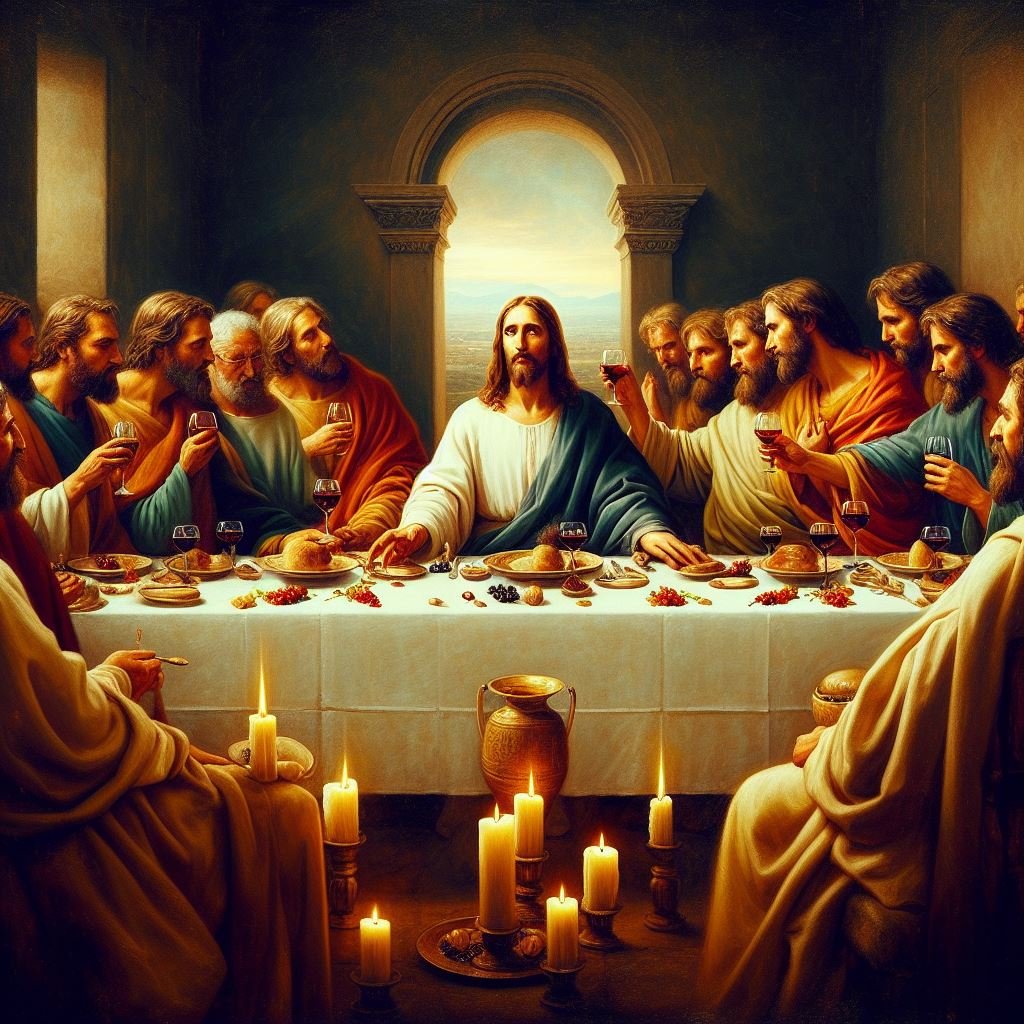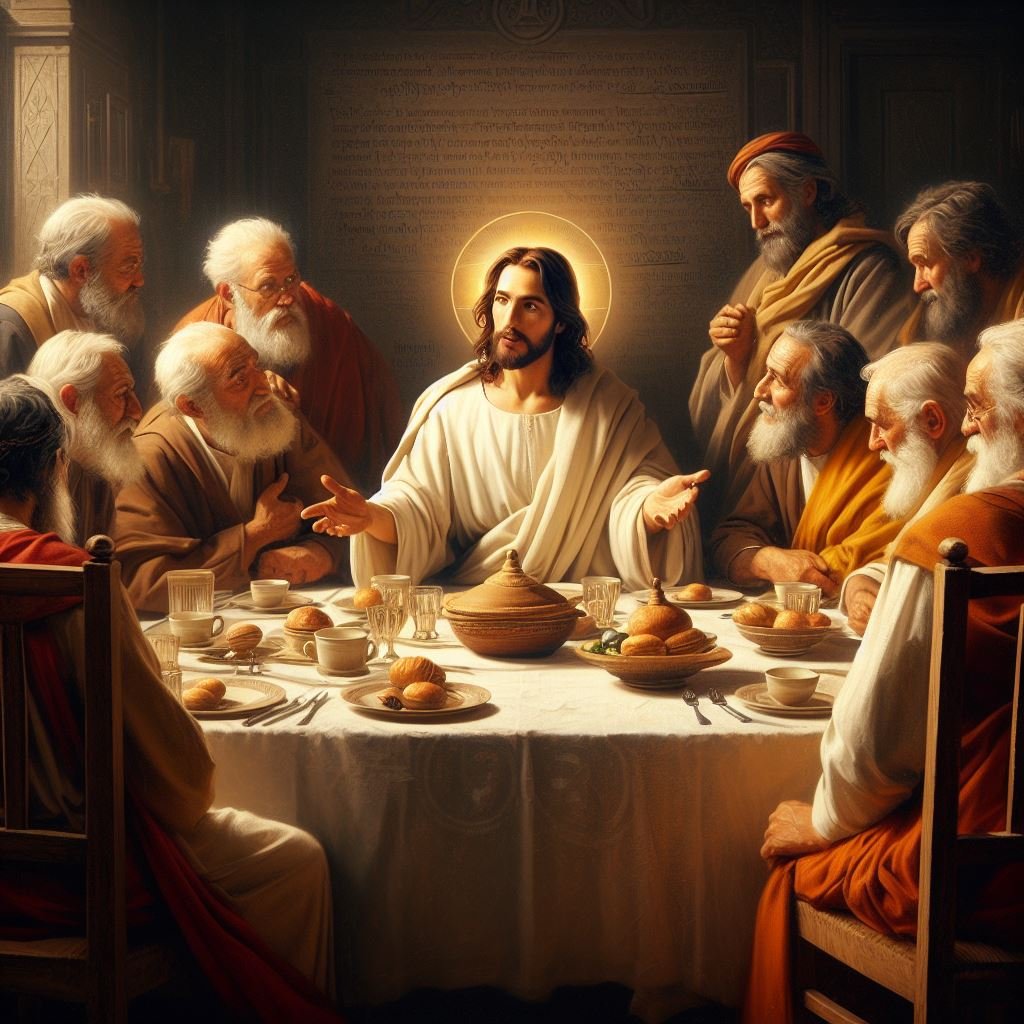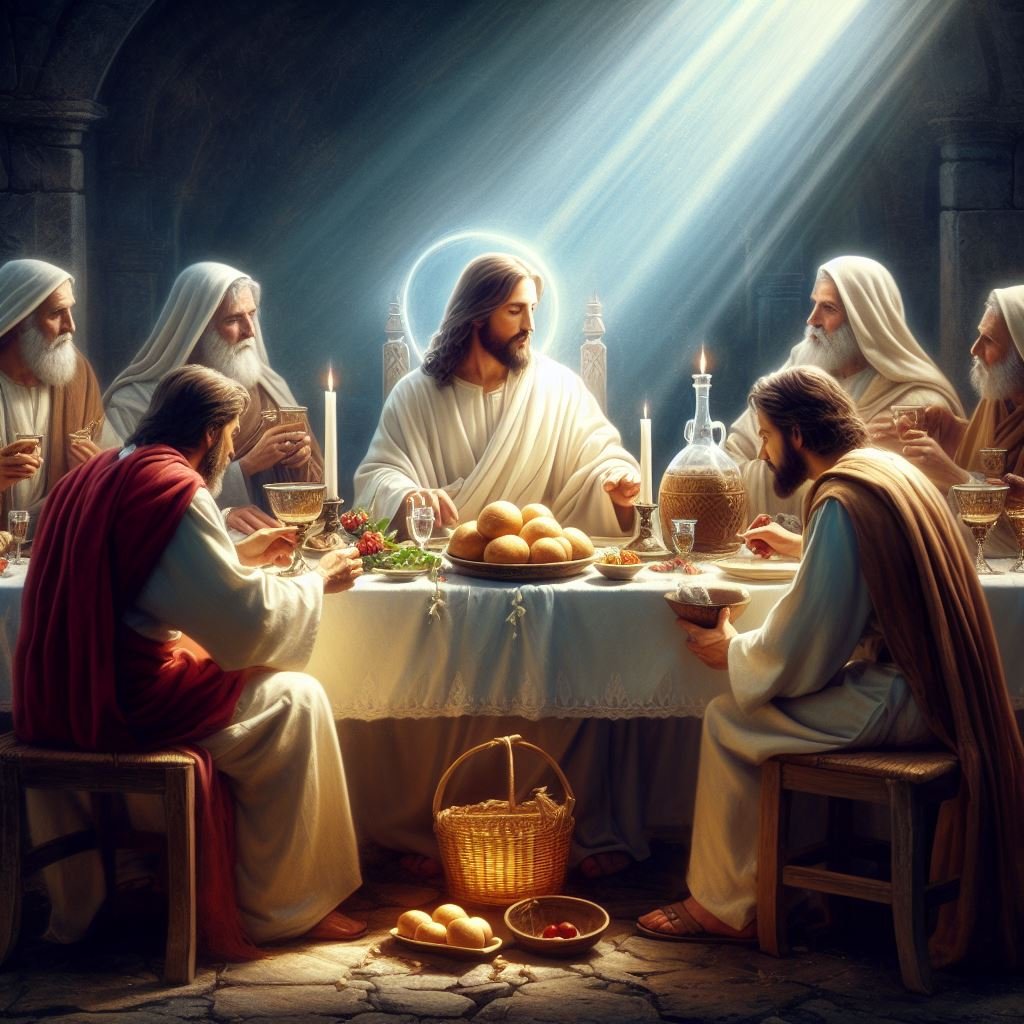Dinner Table Discourse: Conversations That Shaped Jesus’ Ministry
Introduction:

The life of Jesus Christ is often explored through the lens of his teachings, miracles, and parables. Yet, a captivating aspect of his earthly journey lies in the intimate conversations that unfolded around dinner tables. In the warmth of shared meals, Jesus engaged in profound discourse that shaped the very fabric of his ministry. In this exploration, we delve into the significance of these dinner table conversations, discovering the transformative power of dialogue in the life and teachings of Jesus.
The Communal Feast:

In the culture of ancient Judea, the act of sharing a meal was not merely a biological necessity but a sacred communal event. The dinner table served as a space for fellowship, where individuals came together to break bread, share stories, and connect on a deeply personal level. It was within this sacred setting that Jesus chose to engage in conversations that went beyond the surface, delving into the hearts and minds of those around him.
Table Fellowship with Sinners:

One of the distinctive features of Jesus’ ministry was his deliberate choice to dine with individuals considered societal outcasts. Sharing a meal with tax collectors, prostitutes, and sinners was a revolutionary act, challenging the prevailing social norms. These dinner table conversations became a powerful symbol of inclusion, conveying a message of love and acceptance to those who had been marginalized.
Teaching through Parables:

Jesus’ dinner table conversations often took the form of parables – simple, everyday stories that carried profound spiritual truths. These narratives, woven into the fabric of shared meals, were accessible to all, transcending cultural and intellectual barriers. By using relatable scenarios, Jesus created a space for his disciples and followers to reflect on deeper spiritual principles while breaking bread together.
The Last Supper: A Culmination of Discourse

The pinnacle of dinner table discourse in the life of Jesus is perhaps the Last Supper. This sacred gathering with his disciples not only marked the institution of the Eucharist but also encapsulated profound conversations about sacrifice, love, and the impending events of his crucifixion. The symbolic act of breaking bread and sharing wine became a lasting testament to the transformative power of shared meals and meaningful dialogue.
Confronting Hypocrisy:

Jesus’ conversations around the dinner table were not always comfortable or agreeable. He fearlessly confronted hypocrisy and challenged the religious elite on matters of justice, mercy, and compassion. The Pharisees, often subjects of his critique, found themselves engaged in heated discussions that exposed the underlying issues of legalism and self-righteousness.
The Emmaus Road Encounter:

Even after his resurrection, Jesus continued to engage in transformative dinner table discourse. The encounter on the road to Emmaus, where two disciples failed to recognize him until he broke bread with them, exemplifies the depth of revelation that can occur through shared meals. In this instance, the breaking of bread became a catalyst for spiritual awakening and recognition.
Conclusion:
Dinner table discourse played a central role in shaping the ministry of Jesus Christ. Through shared meals, he fostered a sense of community, broke down societal barriers, and imparted timeless spiritual wisdom. As we reflect on these moments, may we be inspired to cultivate meaningful conversations around our own dinner tables, recognizing the potential for transformation in the simple act of breaking bread and sharing words that touch the soul. The dinner table, in the life of Jesus, becomes a sacred space where dialogue transcends the ordinary, leading to extraordinary revelations and a deeper understanding of the divine.




